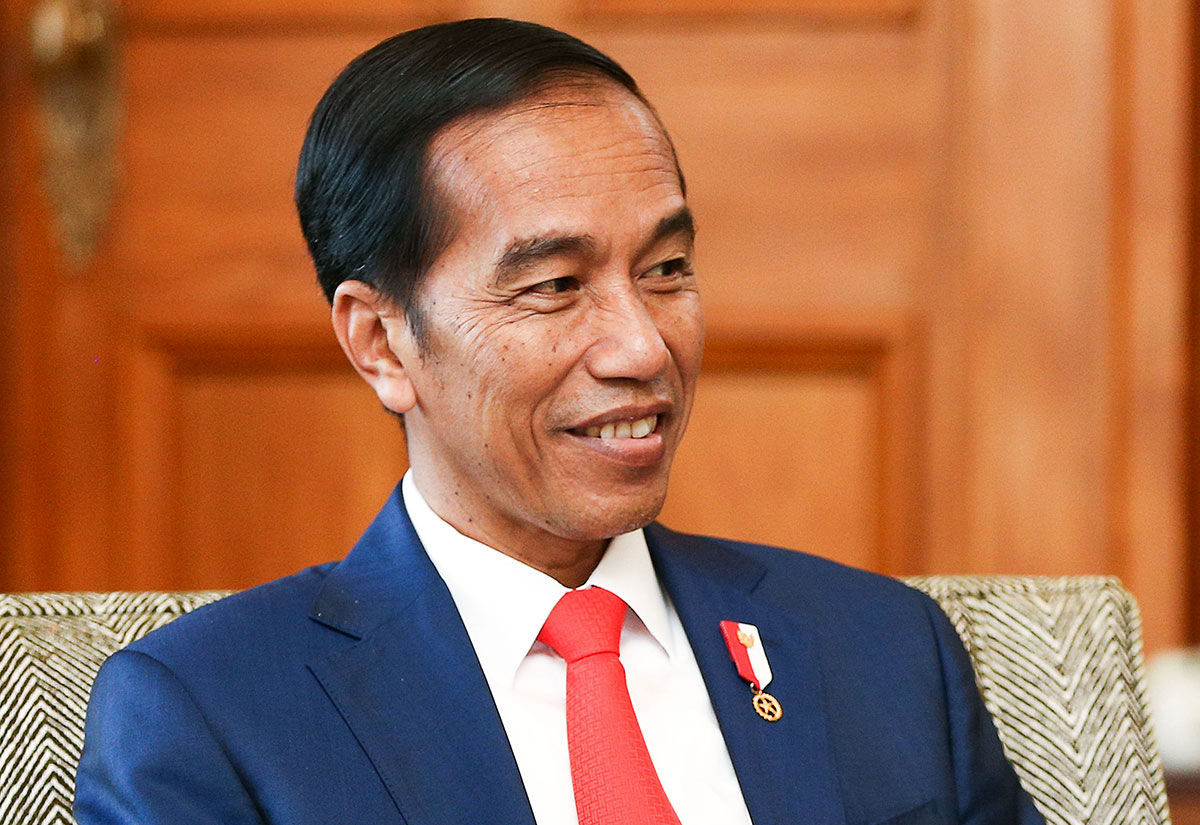Within months of a landslide election win, Indonesian President Joko Widodo is securing new deals with foreign businesses, including scoring the largest international investment in more than five decades.
Japan’s Inpex Corp. said in June it plans to develop the Abadi liquefied natural gas project in Indonesia, which the government says would require investment of as much as $20 billion and generate thousands of jobs.
A few weeks later, Toyota Motor Corp. said it will spend $2 billion to build hybrid vehicles in the country.
The coming days may bring more deals. Jokowi, as the president is more commonly known, will host Abu Dhabi’s Sheikh Mohammed bin Zayed on Wednesday, followed by visits by Softbank Group founder Masayoshi Son and Saudi Arabia’s Crown Prince Mohammed bin Salman in the next few weeks.
Jokowi’s return to power has given him renewed vigor to tackle economic reforms and build infrastructure to lure much-needed foreign investment. Indonesia runs a current-account deficit, which makes it reliant on inflows from abroad. So far, it’s lagging most of its peers in the region in attracting FDI.
“Jokowi is moving fast because such bilateral meetings are needed to attract investment and achieve quick wins,” said Febrio N. Kacaribu, an economist at the University of Indonesia’s Institute for Economic and Social Research in Jakarta.
$91 billion projects
The government is targeting deals worth $10 billion during this week’s state visit by Abu Dhabi’s Crown Prince Mohammed bin Zayed.
The deals will involve a partnership for a refinery with state-owned PT Pertamina, a petrochemicals project with PT Chandra Asri and another with port operator PT Pelabuhan Indonesia.
The government will put forward projects worth $91 billion for possible collaboration with the Arab nation, according to Coordinating Minister for Maritime Affairs Luhut Pandjaitan.
Jokowi has already announced $412 billion of spending on infrastructure over the next five years, and pledged to cut corporate taxes, overhaul stringent labor laws and ease curbs on foreign companies to reshape Southeast Asia’s largest economy.
“Indonesia must provide a red carpet for strategic investors like what Jokowi does by conducting the bilateral meetings,” Kacaribu said. “That way, the country can directly target the strategic investors, make an offer, ask what they need and entice them to invest here for a minimum period of 20-30 years. Such approach is needed to boost investment.”
The cabinet has also approved the second-phase of the Jakarta subway project, and pitched billions of dollars of projects to Chinese investors in recent weeks.
One of the reasons Jokowi is trying to attract more business from abroad is to ensure more resilient financing for the current account deficit, a key vulnerability for the economy. FDI is less volatile than the foreign inflows into stocks and bonds that currently fund the shortfall.
Indonesia is also trying to lure some of the investment that’s relocating to Southeast Asia as businesses look to escape higher tariffs amid the U.S.-China trade war.
But the nation has a long way to go to compete with its peers.
“The implementation of regulations and bureaucratic reforms still need to be addressed,” said Rosan Roeslani, chairman of the Indonesian Chamber of Commerce and Industry. “This has been a weakness until now. We need to accelerate and complete the reform to be able to compete with neighboring countries such as Vietnam, Thailand and Malaysia.”
Saudi visit
Saudi Arabia has so far dithered on making big investments in Indonesia, the world’s largest Muslim-majority nation, but that may change with the visit of Prince Salman. The two countries are expected to decide on a partnership deal to expand Pertamina’s Cilacap refinery.
SoftBank’s Son is scheduled to meet Jokowi next month and the billionaire investor is keen to double down on his Indonesian investments, including in the e-commerce unicorn PT Tokopedia, according to minister Pandjaitan.
Some other big ticket projects announced after Jokowi’s re-election are:
- Tesla, Volkswagen and LG Chem are among companies interested in building battery plants for electric vehicles
- BYD Co. and Anhui Jianghuai Automobile Group known as JAC Motors, are among those being wooed to build electric vehicle plants
- Vale SA’s Indonesian unit and partners plan to spend about $5 billion on nickel projects over the next few years








